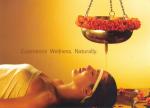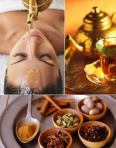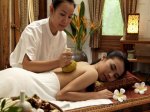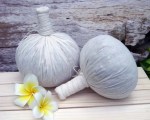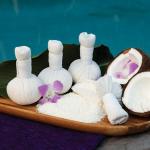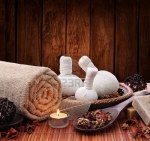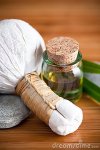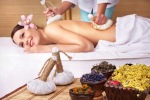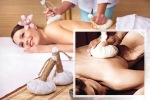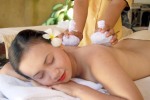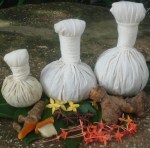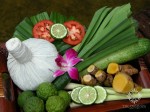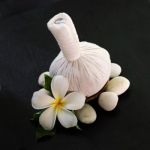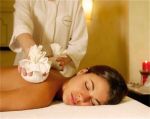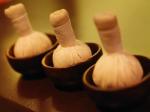Ayurveda Treatment
Ayurveda the traditional form of medicine that was developed in India by ancient sages whose astute observations led to the development of constitutional medicine. Traditional Chinese Medicine too has similar origins. Over the past 5000 years the Ayurvedic and Chinese traditions have developed sophisticated systems of medicines. The ancients visualized the universe as a constant play of energies, an imbalance of which created discomfort and disease in the body.
Ayurveda is an intricate system of healing that originated in India thousands of years ago. This system of medicine stressed on the prevention of body ailments in addition to curing them.
Ayurveda is more than just a medical system. It is a Science of Life. Ayurveda is a system that helps maintain health in a person by using the inherent principles of nature to bring the individual back into equilibrium with their true self. In essence Ayurveda has been in existence since the beginning of time because nature’s laws have always governed us.
Ayurveda or the ‘science of longevity’ is the system of nature cure. It is known to promote positive health, natural beauty and long life. Although rooted in antiquity, Ayurveda is based on universal principles and is a living, growing body of knowledge – as useful today as it was in earlier centuries.
Benefits of Ayurveda
Today, it’s a unique, indispensable branch of medicine – a complete naturalistic system that depends on the diagnosis of your body’s vata, pitta and kapha – to achieve the right balance. Ayurveda believes in the treatment of not just the affected part, but also the individual as a whole. Making it the natural way to refresh yourself, eliminate all toxic imbalances from the body and thus regain resistance and good health.
Ayurveda believes that the human being consists of the five elements, air, water, fire, ether & earth. And the combination of any of these elements exists in each one of us. There are mainly three types of Dosha’s or combinations
Vata — ether & air, governs the movement, nervous system, circulation, respiration & elimination.
Pitta — Fire & water combined governs the metabolism
Kapha — water & earth combined governs growth
The system of Ayurveda says that there are unique proportions of the dosha’s in each body & the accumulation of any one dosha could cause physical ailments or disorders. Ayurveda suggests lifestyle & nutritional remedial measures and sometimes medicines or massages to reduce the excess of the dosha.
When alternative lifestyles and stressful schedules are discussed, Ayurveda, the art of ancient Indian healing cannot be far behind. The inability of modern allopathy to allay all sicknesses and diseases has made an increasing number of people turn to Ayurveda, which has a cornucopia of ancient secret cures for stubborn diseases. Along with yoga, Ayurveda is the new balm for fevered souls. It uses natural herbs and their oils to treat ailments and ensure a healthy life.
Restoring Balance
Ayurveda believes that the imbalance of fire, air and water causes disease in the human body and tries to correct it primarily through cleaning and massage. Once the balance is restored, the body copes better with external factors like pollution, strain and infections.
Oils and herbs
The type of oil used for massage differs according to the ailment being treated. It is one of these: camphor, neem, mustard and castor. To these are added various powdered herbs, nuts and the bark of trees. The Ayurvedic practitioner may conduct the massage using the palm of the hand, stones, and/or cloth.
Herbal Therapy Treatment
Herbal Therapy Treatment
Herbal therapy is a broad term used to refer to any type of healthcare treatment using fresh or dried herbs. The use of herbs may take the form of supplements, fusions or teas, tinctures, topical creams and poultices. Herb therapy may also include the creation of a healing steam that is scented with various combinations of herbs.
While the origins of herbal therapy are unknown, just about every culture has used herbs as a means of dealing with different physical and emotional illnesses. Perhaps the most ancient documented form of this type of therapy is found in the healing traditions of China. Grounded in Taoist beliefs and principles, Chinese herbal therapy incorporates the use of many differenttypes of herbs in caring for the sick. While in some cases, a single herb is used in the therapeutic treatment, it is not at all unusual for several herbs to be combined in order to prepare medicine for a specific ailment.
One of the strengths of herbal therapies in general is that the use of herbs helps to provide the body with essential nutrients that may be lacking in the daily diet. When the body does not receive sufficient nutrition, various types of aches, pains, and emotional disorders begin to appear. By using herbs to restore a nutritional balance, the body is equipped with what it needs to overcome illness and regain health.
One of the strengths of herbal therapies in general is that the use of herbs helps to provide the body with essential nutrients that may be lacking in the daily diet. When the body does not receive sufficient nutrition, various types of aches, pains, and emotional disorders begin to appear. By using herbs to restore a nutritional balance, the body is equipped with what it needs to overcome illness and regain health.
Natural herbal therapy can take many forms. Teas and tinctures are among the most common approaches. Both are efficient ways to quickly introduce nutrients into the body, and may provide quick relief. One noted example is the claims made for a simple tea made with cayenne powder and hot water. The tea is said to ease both the pain and the damage that can be the result of a heart attack in a matter of minutes.
Dried herbs are also a common tool in the practice of herbal therapy. Leaves, stems and sometimes roots are dried and ground into fine powders that can then be ingested as capsules or used topically to prepare poultices to place on the skin. The capsules are considered ideal with there is a need to release the healing agents of the herbs over a longer period of time. In like manner, skin rashes, muscle aches, and joint pain may begin to subside after applying a poultice that contains herbs known to soothe the skin or to ease swelling and inflammation.
Herbal aromatherapy is a specialized type of herbal therapy that utilizes herbs to restore the balance between the body and the mind. Often, the process involves simmering fresh or dried herbs in water to release the scent. For example, simmering lavender is said to help calm the nerves after a trying day and may also be effective in easing the after effects of an anxiety attack.
Various schools of alternative medicine also utilize herbal therapy to treat severe ailments such as cancer and diabetes. With herbal therapy for cancer, the focus is usually on oral preparations such as tinctures and capsules of dried herbs to help strengthen the body’s natural defenses, allowing them to first contain and finally overcome the abnormal cells that make up malignant tumors. Diabetic herbal therapy aims at aiding the body in processingcarbohydrates more effectively, thus preventing spikes in blood sugar levels.
Opinions on the efficacy of herbal therapy range from complete skepticism to full confidence in the healing properties of herbs. While some herbs serve as the basis for a number of Western medications, other herbs do not as yet have the backing of scientific proof that they are as effective as folklore claims them to be. Still, there are many people who claim to have found relief from various ailments using herbs after receiving little or no relief from modern medicine.
Dried herbs are also a common tool in the practice of herbal therapy. Leaves, stems and sometimes roots are dried and ground into fine powders that can then be ingested as capsules or used topically to prepare poultices to place on the skin. The capsules are considered ideal with there is a need to release the healing agents of the herbs over a longer period of time. In like manner, skin rashes, muscle aches, and joint pain may begin to subside after applying a poultice that contains herbs known to soothe the skin or to ease swelling and inflammation.
Herbal aromatherapy is a specialized type of herbal therapy that utilizes herbs to restore the balance between the body and the mind. Often, the process involves simmering fresh or dried herbs in water to release the scent. For example, simmering lavender is said to help calm the nerves after a trying day and may also be effective in easing the after effects of an anxiety attack.
Various schools of alternative medicine also utilize herbal therapy to treat severe ailments such as cancer and diabetes. With herbal therapy for cancer, the focus is usually on oral preparations such as tinctures and capsules of dried herbs to help strengthen the body’s natural defenses, allowing them to first contain and finally overcome the abnormal cells that make up malignant tumors. Diabetic herbal therapy aims at aiding the body in processingcarbohydrates more effectively, thus preventing spikes in blood sugar levels.
Opinions on the efficacy of herbal therapy range from complete skepticism to full confidence in the healing properties of herbs. While some herbs serve as the basis for a number of Western medications, other herbs do not as yet have the backing of scientific proof that they are as effective as folklore claims them to be. Still, there are many people who claim to have found relief from various ailments using herbs after receiving little or no relief from modern medicine.



